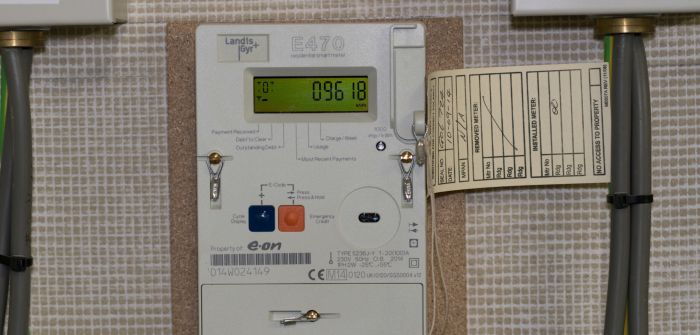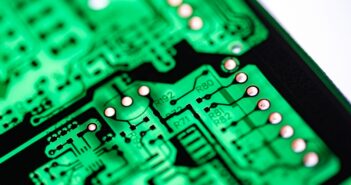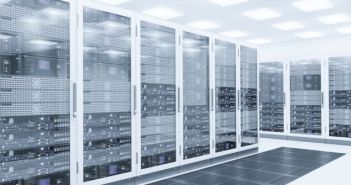The Federal Government’s vision is that the energy transition will drive progress in energy efficiency, modernisation, innovation and digitalisation in the electricity and heating sectors. Since the beginning of 2020, the use of certified smart meter gateways has been a legal obligation as part of the conversion of metering to smart metering systems.
Table of Contents: What awaits you in this article
Binding for all: Smart Meter Gateway as a modern metering system
The integration of smart metering systems is a significant milestone for the implementation of the climate protection and energy transition goals in the digital energy transition. The Federal Office for Information Security (BSI) plays a central role in this. In times of climate change, Germany is striving for a sustainable energy supply and is dependent on a modern and secure digital infrastructure in order to successfully implement the energy transition in the electricity sector.
Since September 2016, the “Act on the Digitisation of the Energy Transition” (GDEW) has been in force, which has established the Metering Point Operation Act (MsbG) as the authoritative law for metering point operation. The MsbG defines the legal requirements for the performance of measurements and the operation of metering points.
In particular, the requirements for data protection and data security as well as the installation, operation and maintenance of smart metering systems are taken into account. The law also sets out a mandatory timetable (rollout) for the installation of smart metering systems, which prescribes by what date each energy supply company must provide its end consumers with a smart metering system.
Energy meter of the future: How does a smart meter gateway work?
A smart meter gateway connects smart meters or sensors to the network of the respective energy supplier. It collects all relevant data and forwards it to it, so that the utility can better understand how much energy is being consumed and produced. This allows tariffs to be adjusted and the customer experience to be optimised.
Security strategies for the digital energy transition: Protection against cyber attacks and data protection
The law promotes digitalisation as part of the energy transition and at the same time requires mandatory compliance with the strictest security standards in order to ensure effective protection against cyber-attacks while at the same time ensuring the protection of personal data. Here you will find the most important questions and answers on the topic of smart meter gateways.
Prescribed timeline for the nationwide introduction of smart meters
The nationwide introduction of smart meters began in Germany at the beginning of 2020 in order to reduce CO2 emissions and support climate protection. Here you can find out what changes consumers can expect and who can benefit from the new smart electricity meters.
Conversion to smart meters: Mandatory decision with gradual implementation
By certifying three independent manufacturers at the end of 2019, the Federal Office for Information Security (BSI) has issued a market declaration that serves as the basis for the large-scale roll-out in 2020.
- 2015: Setting the legal course: advancing the digitalisation of the energy transition
- 2017 and beyond: Conversion recommended for customers with consumption above 10,000 kWh per year.
- From 2020, customers with an electricity consumption of less than 10,000 kWh will be equipped with smart meters. For households with a consumption of less than 6,000 kWh, there is the option of choosing a smart meter, provided that a modern meter is already installed.
- By 2032, it will be mandatory to equip all metering points with modern or smart meters.
Implementation of the requirements for businesses and private electricity customers with increased demand for electrical energy
The gradual installation of smart meters will initially affect electricity customers with a consumption of more than 10,000 kWh, mainly (small) businesses and private households with very high electricity consumption. Officially, these households should already be converted from 2017. E.ON was the first company in Germany to install a state-certified smart meter at a customer in northern Germany at the end of 2018. Since then, E.ON has already installed additional meters at several hundred customers.
Smart meter gateways for all: implementation of the obligation in households and for low consumers
With the “Act on the Digitisation of the Energy Transition” from 2020, many private households will be affected. Initially, households with a consumption of 6,000 to 10,000 kilowatt hours will be converted to smart meters, before consumers with lower consumption will also be obliged to do so later. From 2032, the use of smart meters will then be mandatory for all electricity customers.
Smart Meter Definition
A smart meter is a digital and internet-enabled electricity meter with a communication unit (gateway) that makes it possible to query and communicate current consumption data. It plays an important role in the energy transition and is intended to stabilise the smart grid by measuring electricity consumption every 15 minutes and storing the data for about 60 days. In addition, it can inform the grid operator about consumption and other information.
The term “iMSys” also covers modern electricity meters, but there are differences between them and conventional metering systems.
- Modern metering equipment (mME): Digital meter with display and without internet connection, also known as a contemporary electricity meter.
- Smart electricity meter: An advanced meter with internet connection and remote readout capabilities that also offers online features thanks to a communication unit.






